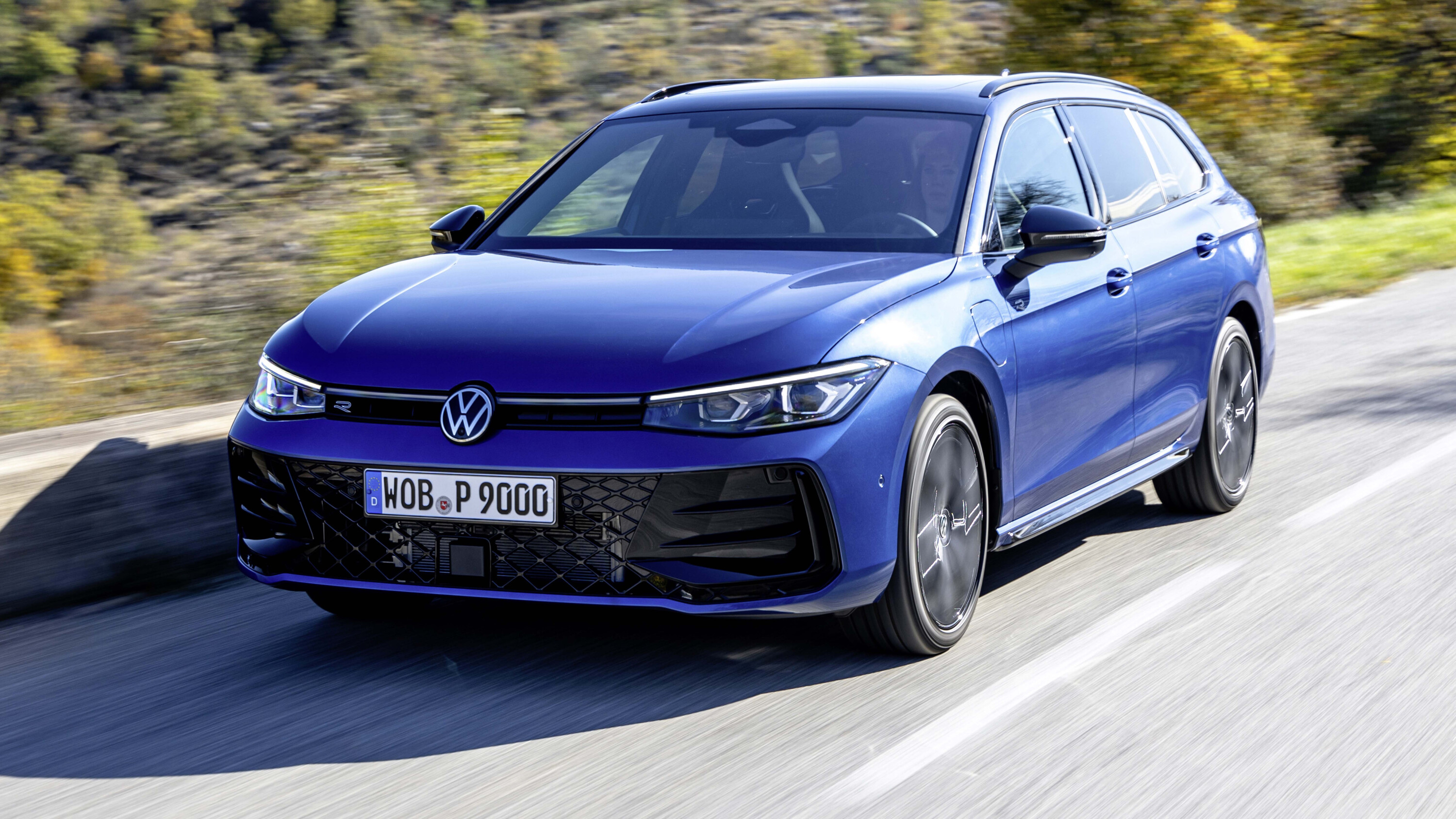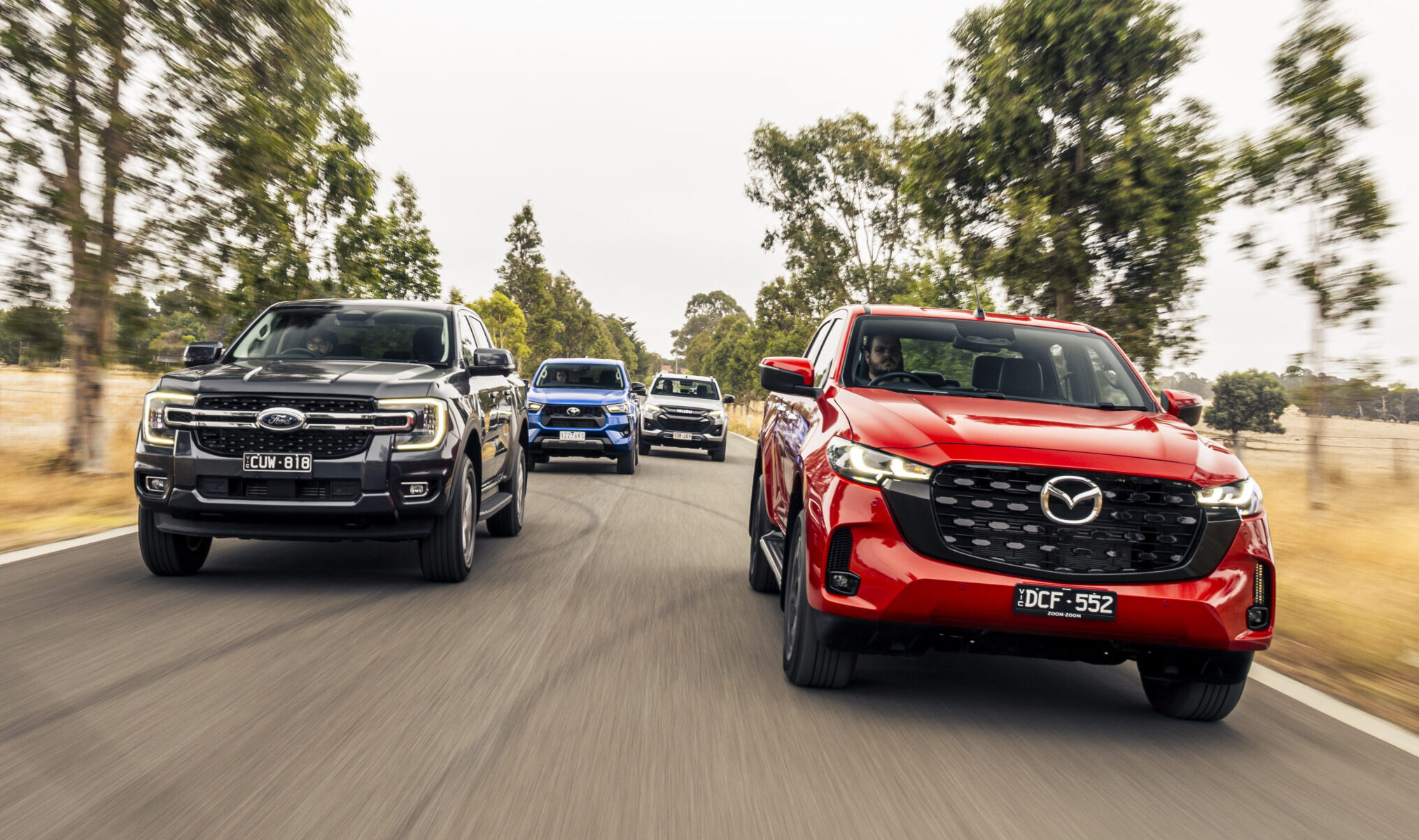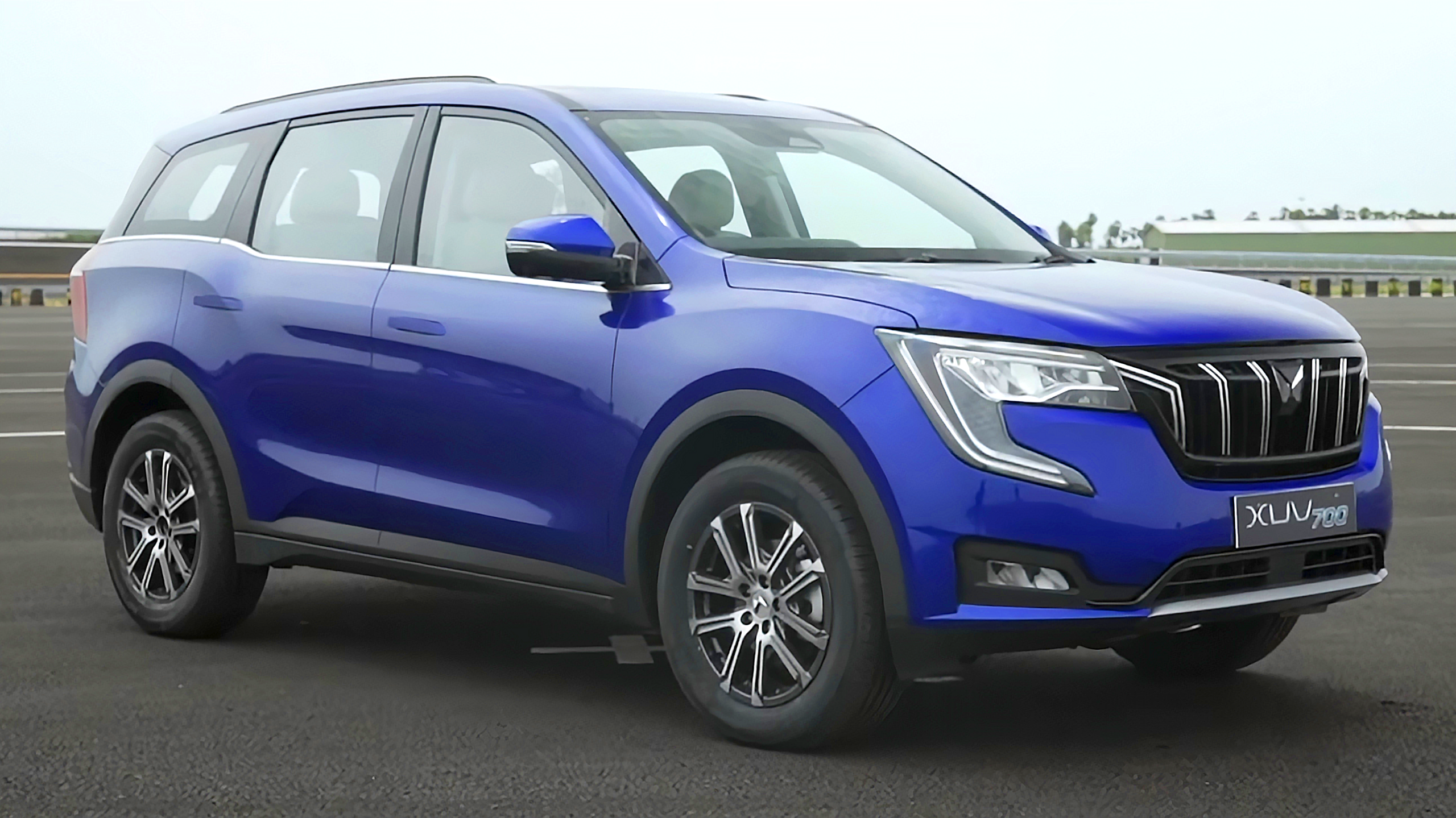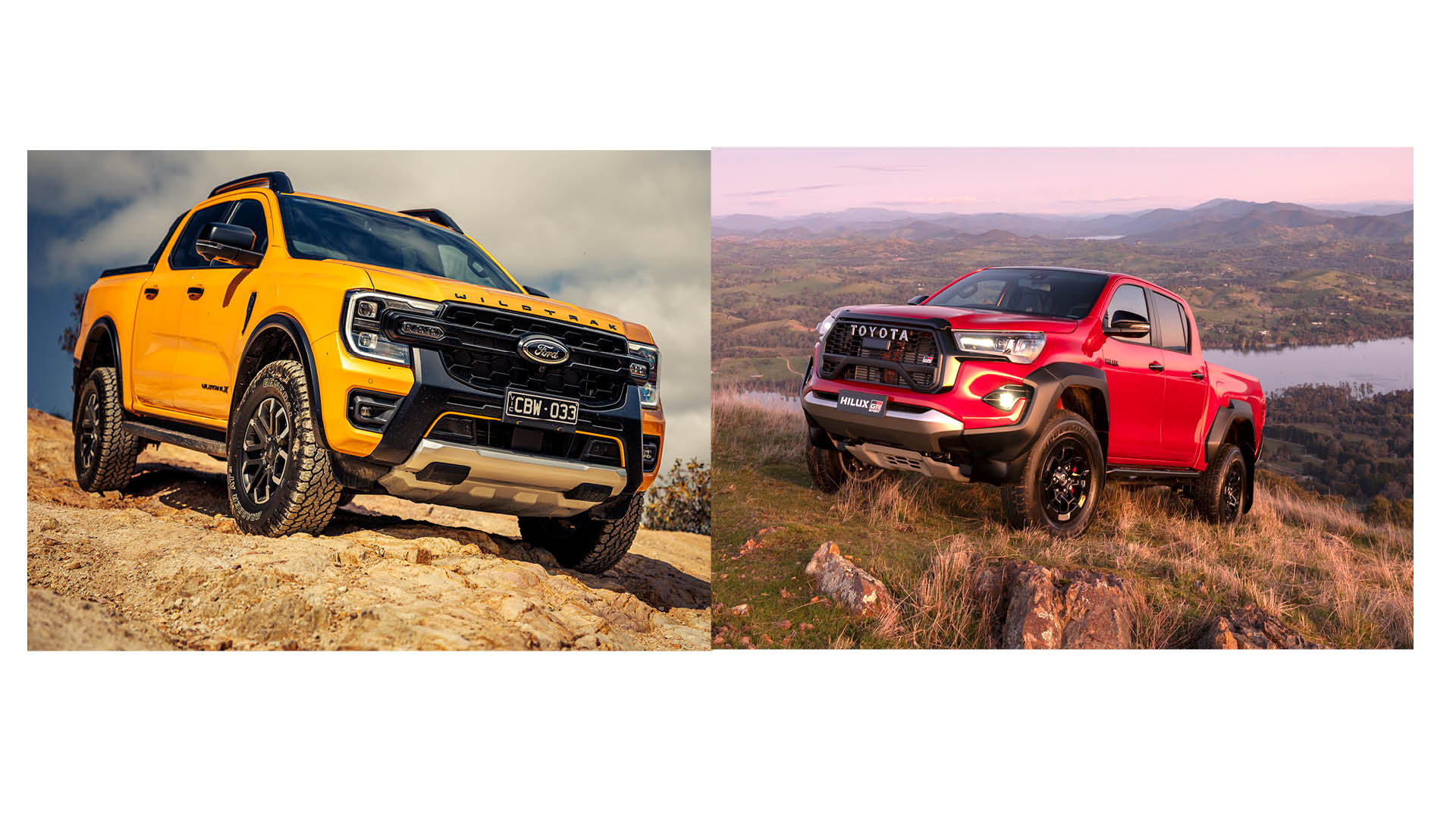Things we like
- Solid and classy inside
- Decent EV range from the plug-in hybrid
- Steers sharply, grips strongly
Not so much
- VW’s curious ergonomics still linger
- Wagon-only and no longer as handsome
- Australian sales unlikely for now
This is the new 2024 Volkswagen Passat?
It certainly is, although we wouldn’t blame you for feeling a mite underwhelmed. Where the outgoing, eighth-generation Passat was a chiselled thing – and charmingly rugged in Alltrack spec – this new car lacks visual clout.
The Skoda Superb was always reasonably related to the Passat, but while the latest versions of each again share a platform and powertrains, they now also share much of their bodywork. And that’s robbed this car of some individuality.
Still, its curvier lines have a noble cause; a newly slippery 0.25 drag coefficient whips its predecessor’s 0.31Cd into shape and nudges the humble petrol-powered Passat towards EV territory.
The primary aim here isn’t a gargantuan range figure, but rather optimum hush and refinement inside. Many mainstream rivals have ebbed away, thus the general class standard around it is much more premium. The Passat is smartening up to suit.
JUMP AHEAD
- Tell me more about this Passat…
- How does it drive?
- How’s the interior?
- Are we missing out on the 2025 Passat?
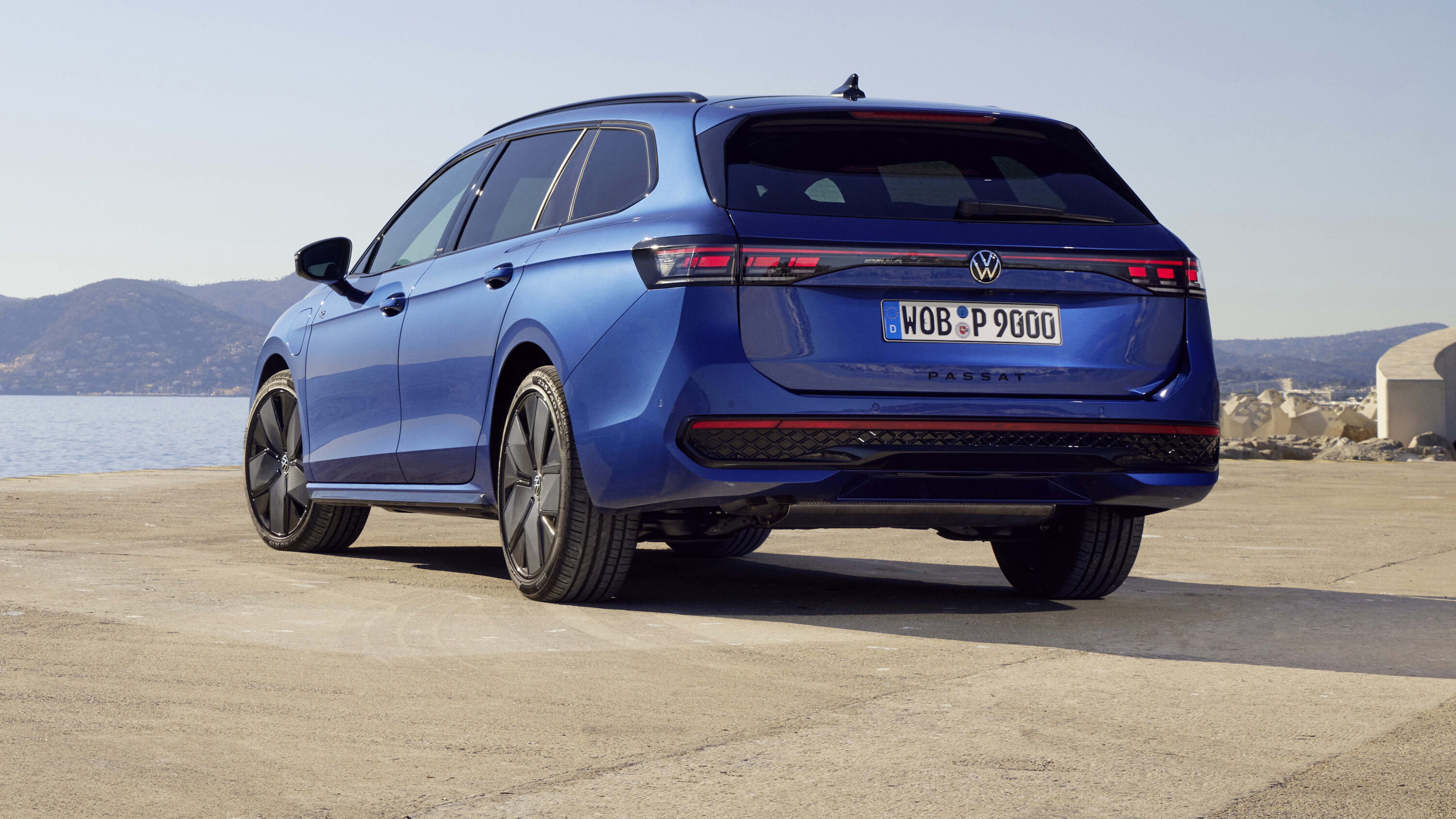
Did you say nine generations of Passat?
Yep, it’s a popular car. The badge has been with us for over 50 years and VW has now shifted more than 33 million examples.
Even if the SUV market is rapidly eating into traditional sedan and wagon sales, the equity of a sub-brand like ‘Passat’ can’t be knocked (although on these shores Volkswagen has so far said we won’t get this model). At least a European drive helps us preview the oh-so-heavily related Superb ahead of its Australian release…
Though the Skoda will arrive in hatchback and wagon variants, VW is offering only the latter. We’d tend to recommend the wagon in most cases anyway, but perhaps it’s worth taking a short moment to mourn the sedans disappearing quietly from our showrooms.
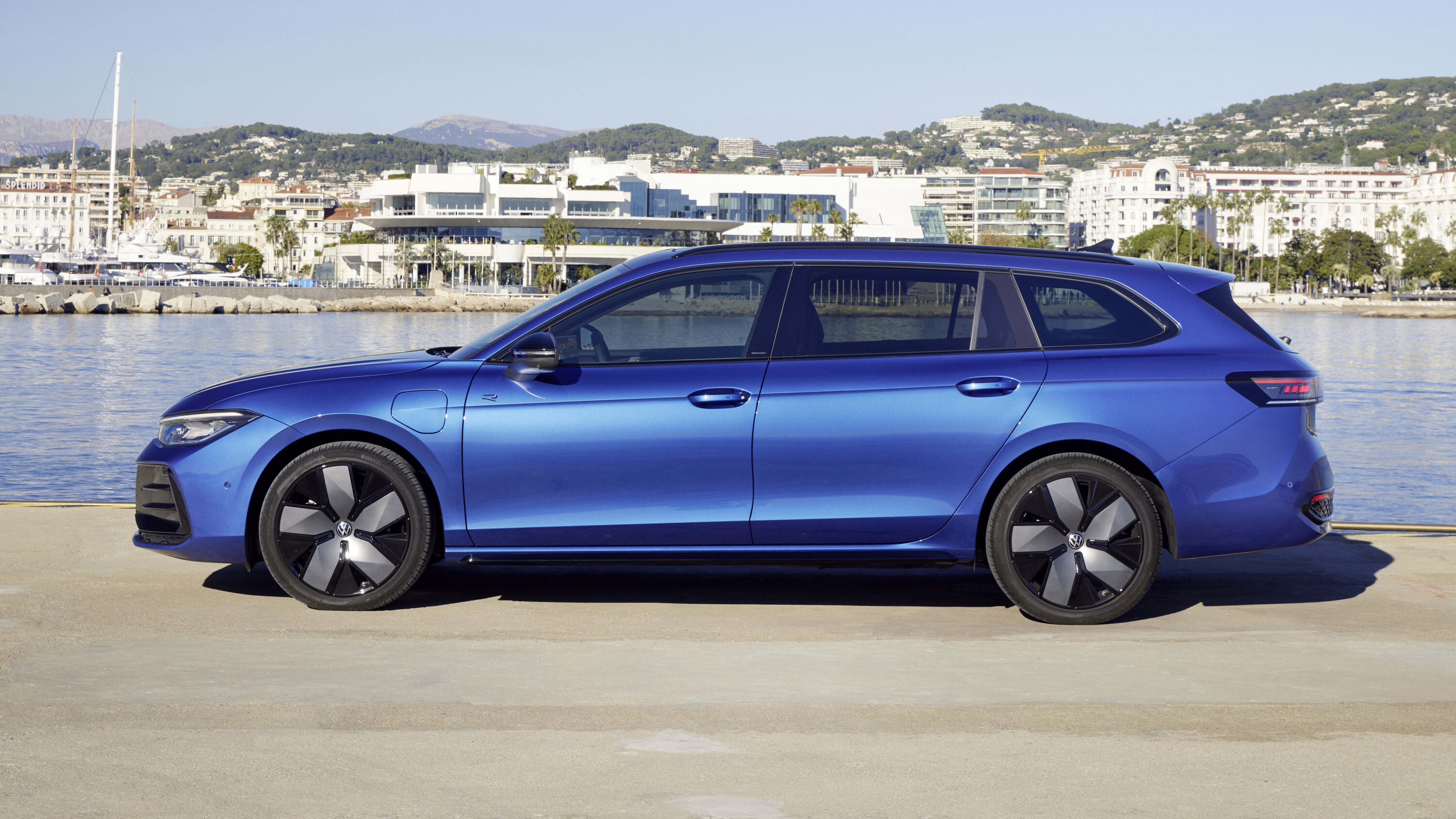
Alright, tell me more about this Passat…
There’s a broad engine range in Europe.
A 1.5-litre TSI turbo-petrol engine comes in both mild and plug-in hybrid forms; the former is 250kg lighter and brings sharper dynamics, while the latter will hoover up a lot of sales thanks to strong fleet car credentials and an ability to cover around 100km purely on electricity or a bulky 900km overall.
The 2.0-litre TSI lives on too, with 110kW or 195kW peaks, the latter similar to that in the front of a Golf GTI and good for a perky 5.6sec sprint to 100km/h. A 2.0-litre TDI offers 90kW, 110kW and 142kW outputs.
For each fuel type, the highest tune brings all-wheel drive for a headline 2200kg towing capacity.
Every single Passat now has a DSG dual-clutch automatic transmission with the design team decluttering the centre console as a result – gear selection moves to the right-hand column stalk with the wipers and indicators incorporated on the left. You still get paddle shifters, thankfully.
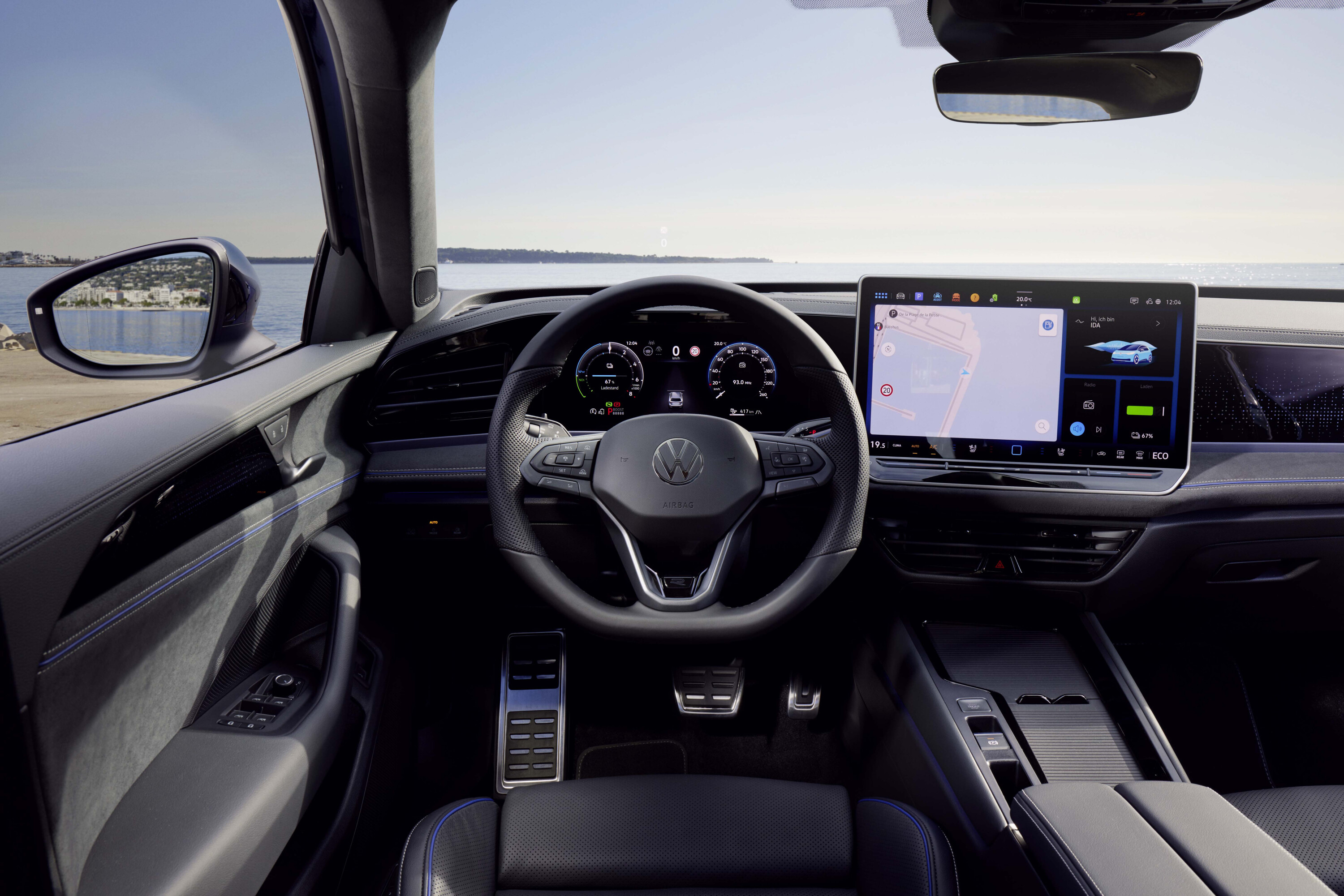
How does it drive?
Sharing its platform with the latest VW Tiguan – which Australian showrooms will get – the Passat steers, handles and grips well. Its ‘MQB Evo’ platform promises much for the no-doubt countless models that’ll sit atop it, not least the new Superb.
But where the Tiguan crashes abruptly over urban road furniture, the Passat is a comfier place to be. There’s still a firm edge to its suspension, even on meek 18-inch alloys that don’t do its embiggened dimensions justice, but it’s at least better than the SUV (as you’d hope with less mass and a lower centre of gravity).
The 1.5-litre TSI mild hybrid that kicks off the range might just do the trick, especially if you’ll rarely fill every litre of luggage space. It’s the neater car to drive thanks to its 250kg-lower weight and, despite its inability to run on electricity alone, it’s the best proof possible that this new Passat has nailed its refinement brief, being impressively hushed on a motorway cruise.
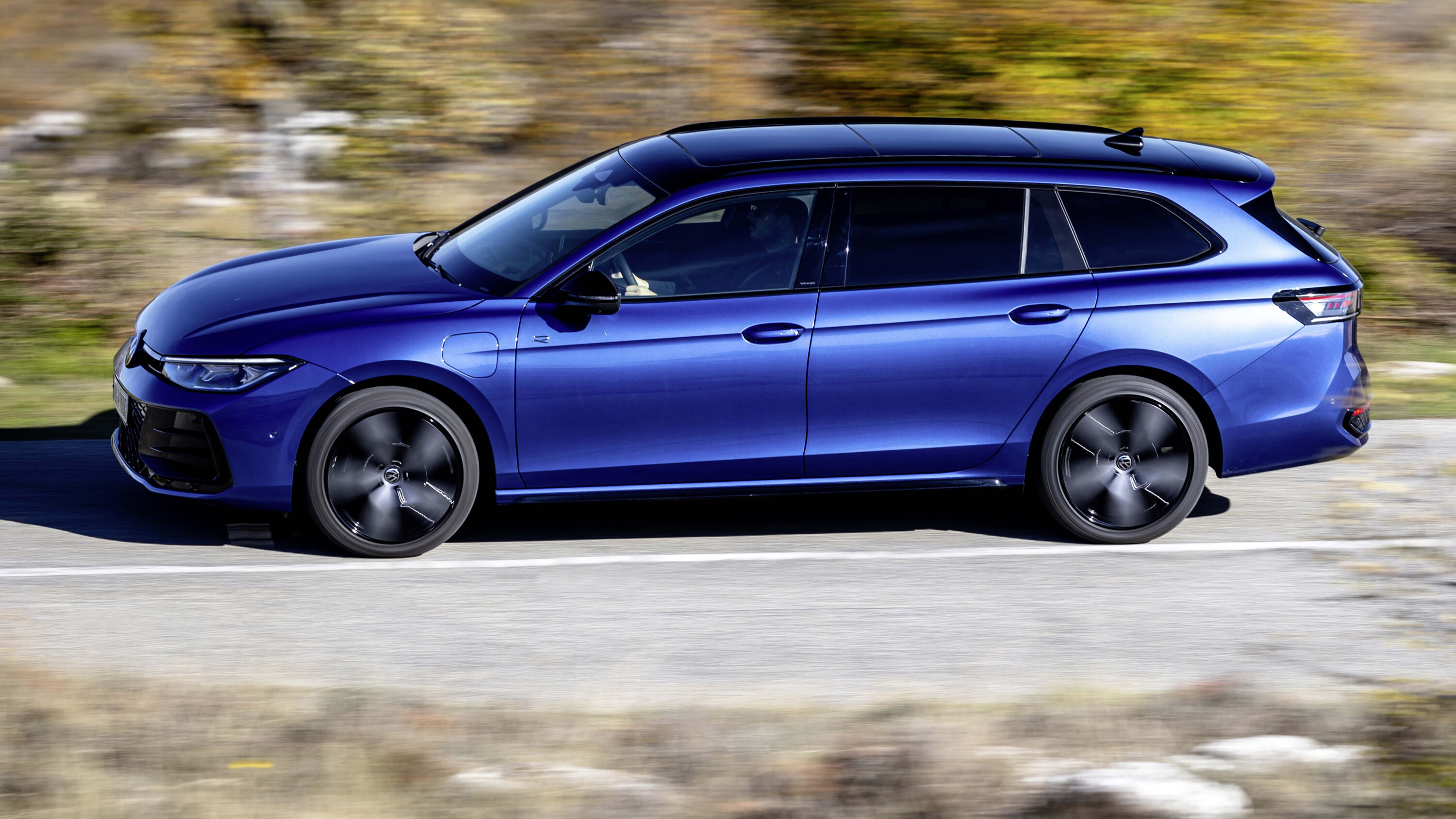
You might learn to love the looks when you know what tricks their aero is weaving.
The top-selling Passat is expected to be a plug-in hybrid, mind. While a 200kW peak output tops the two options, you’ll rarely extract every ounce of performance in either car, not least because the slightly coarse nature of their engines at higher revs discourages it. Better to lean into the car’s efficiency credentials.
It’s got enough to pep in EV mode around town and is pleasant to punt around, even if the whine of the e-motor occasionally cuts through the quiet. But in truth, it’s the larger 2.0-litre petrol and diesel options that, unfashionable as it may be, put this car right in its comfort zone. They pair brilliantly with the DSG ‘box and should make motorway miles a breeze.
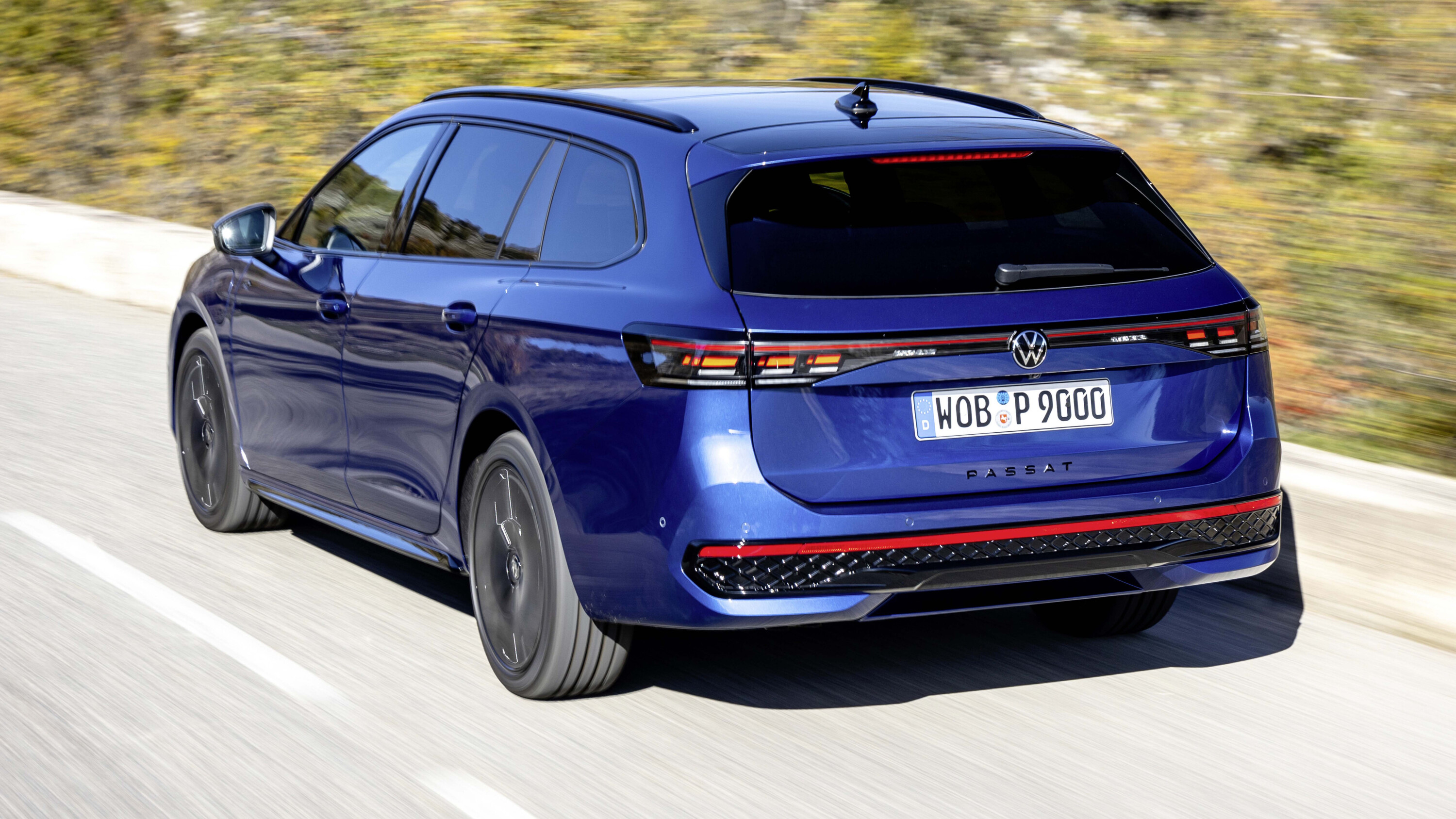
How’s the interior?
It’s still very touchscreen-led in here. Every Passat gets a 12.9-inch display as standard, though we’ve only tried launch cars with the (roughly $1600) optional 15-incher.
This screen is large enough to fall easily into your field of vision, while a ChatGPT-enabled voice control setup is meant to ease distraction further. Naturally, it feels a bit of a work in progress, handling in-car requests promptly but tripping over itself a tad if you try more obtuse questioning. Updates should bring it up to speed, though.
VW still hasn’t rewound to physical climate controls – though the Superb does offer them – while the quality in here feels top-notch. A subtle step up from the Tiguan, even, to help justify higher pricing in Europe – and perhaps quell some of the dwindling appeal of trad estates like this.
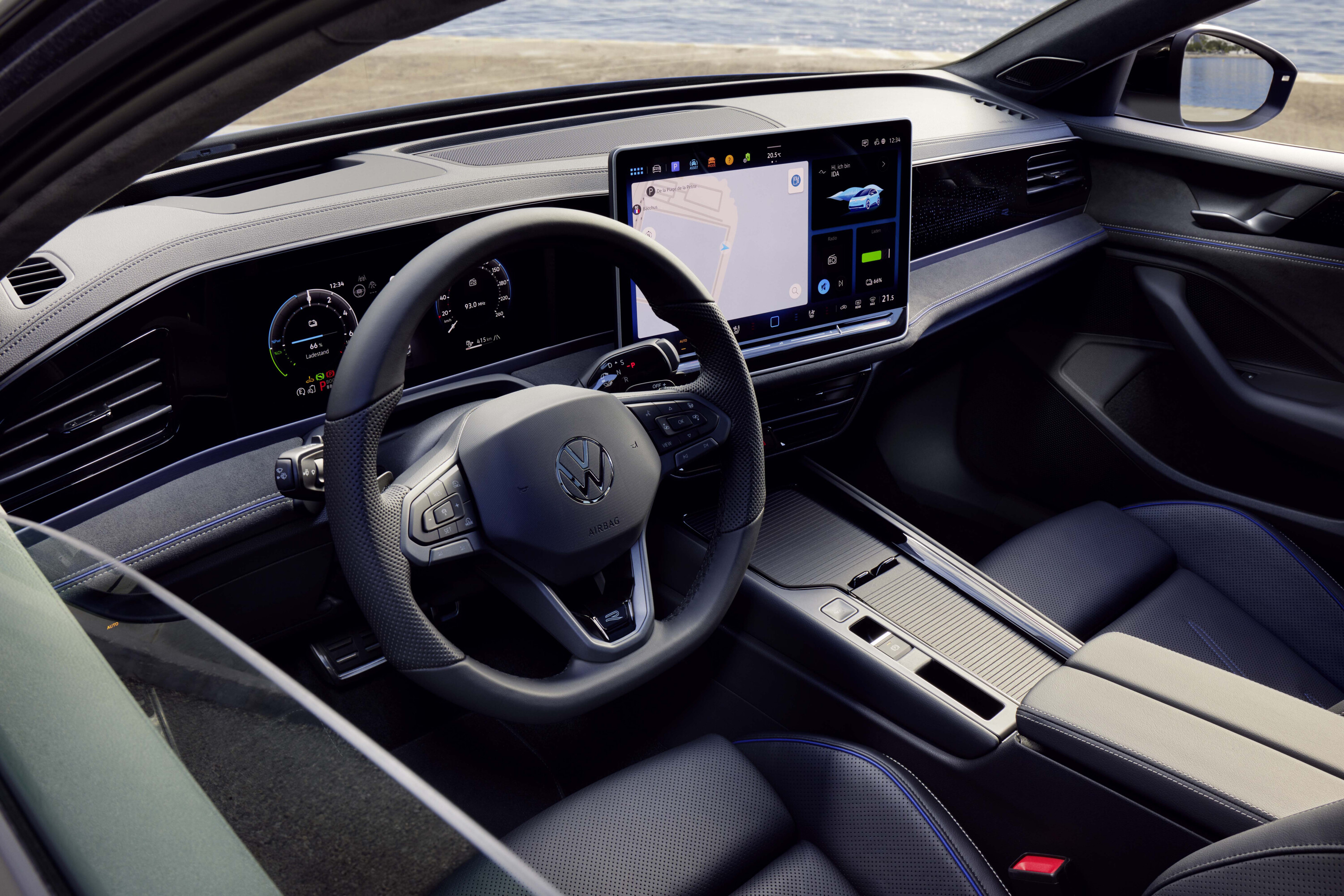
Ambient lighting is scattered everywhere, not least for a new artful dashboard display ahead of the passenger, while heated, vented and massaging seats offer an array of options and intensities.
Massage seats in rival Stellantis products hiss and groan as they operate, but the library-like tranquillity of the Passat is never disturbed.
And boy, is there room in here. While sharing so much DNA with the Skoda Superb arguably robs the Passat of some personality, it’s the automotive equivalent of pairing up with the swottiest kid in school for a class project.
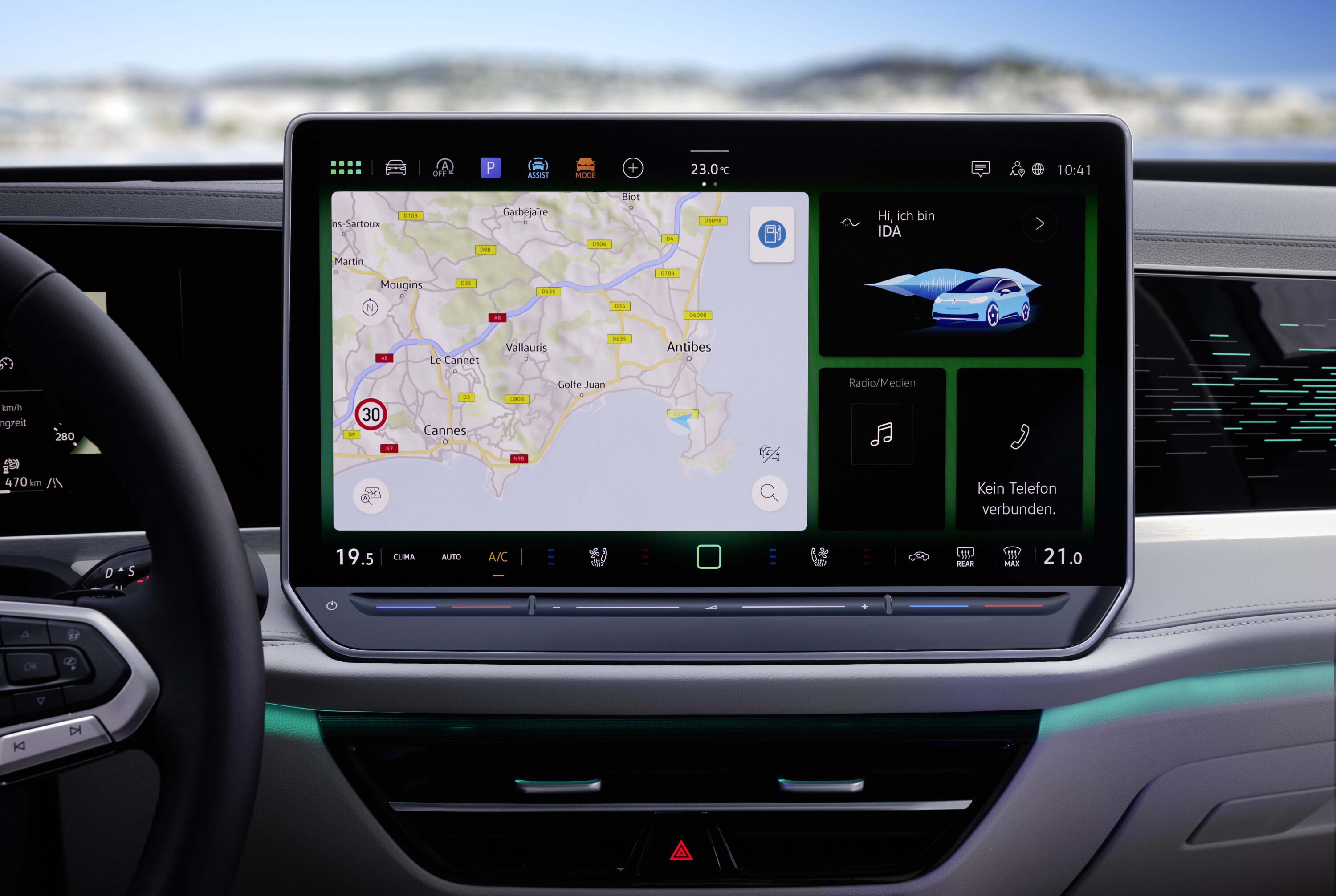
Adults will feel comfy in the back and the boot is large
The Passat has gained 50mm of wheelbase, every bit of it boosting rear legroom while the boot capacity now measures 690 litres with the rear seats in place, or 1920 with them flipped – respective improvements of 40 and 140 litres and even more than that of a gargantuan Mercedes-Benz E-Class wagon.
On-paper numbers are merely that, of course, but thankfully the reality is strong, too. Adults will feel comfy in the back and the boot is large, though it’s pertinent to point out that plug-in hybrid Passats offer reduced luggage capacity of 510/1770 litres thanks to their battery.
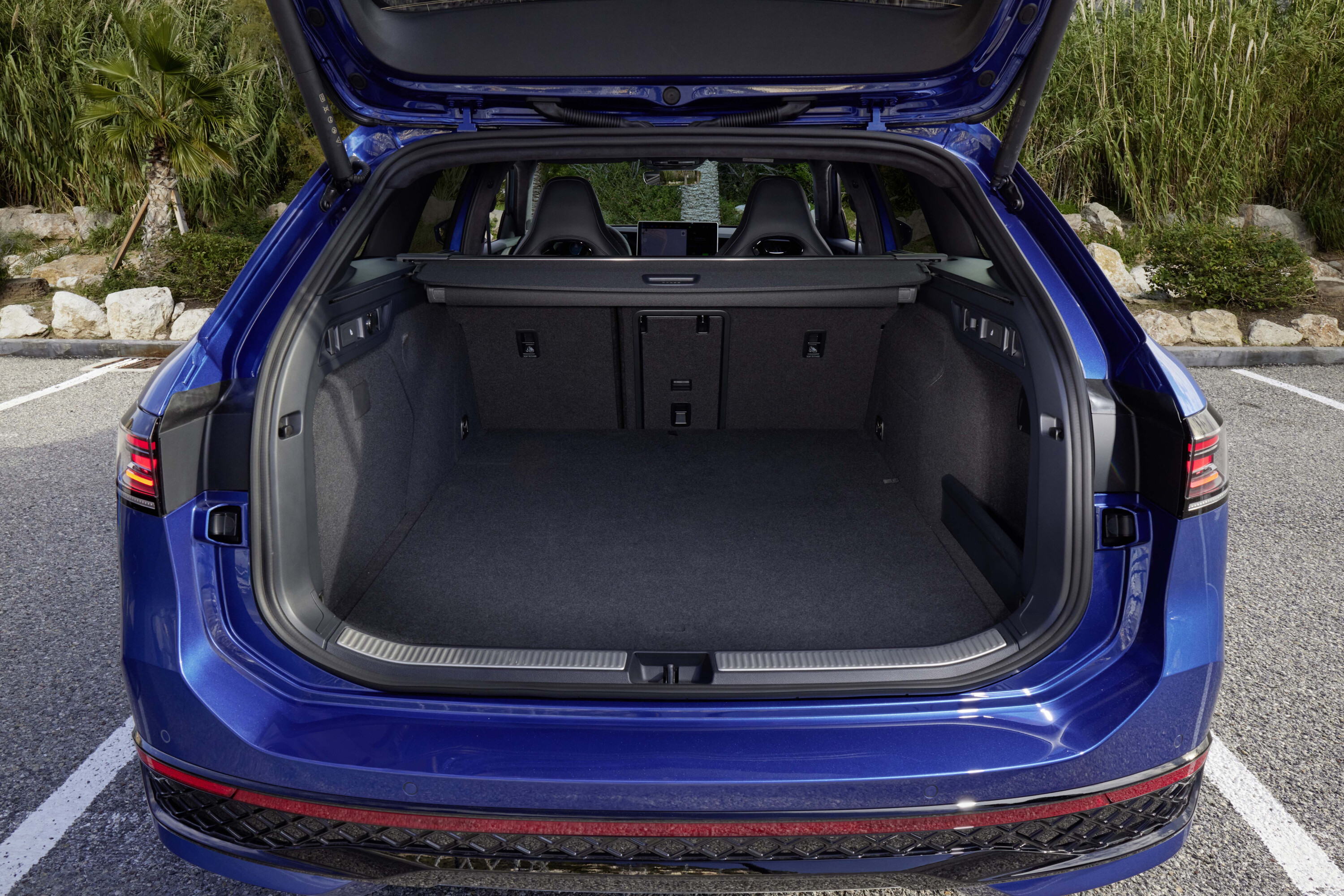
Are Australians missing out on the 2025 Passat?
Well, we’re getting the latest Skoda Superb so we’re not truly missing out on what’s been reviewed here.
Pair the obvious dynamic and refinement strengths of this Passat with the (arguably) sharper looks and more traditional ergonomics of the Skoda and it feels like we’re onto quite a winning package.
Full verdict when we get our hands on the Superb, of course.
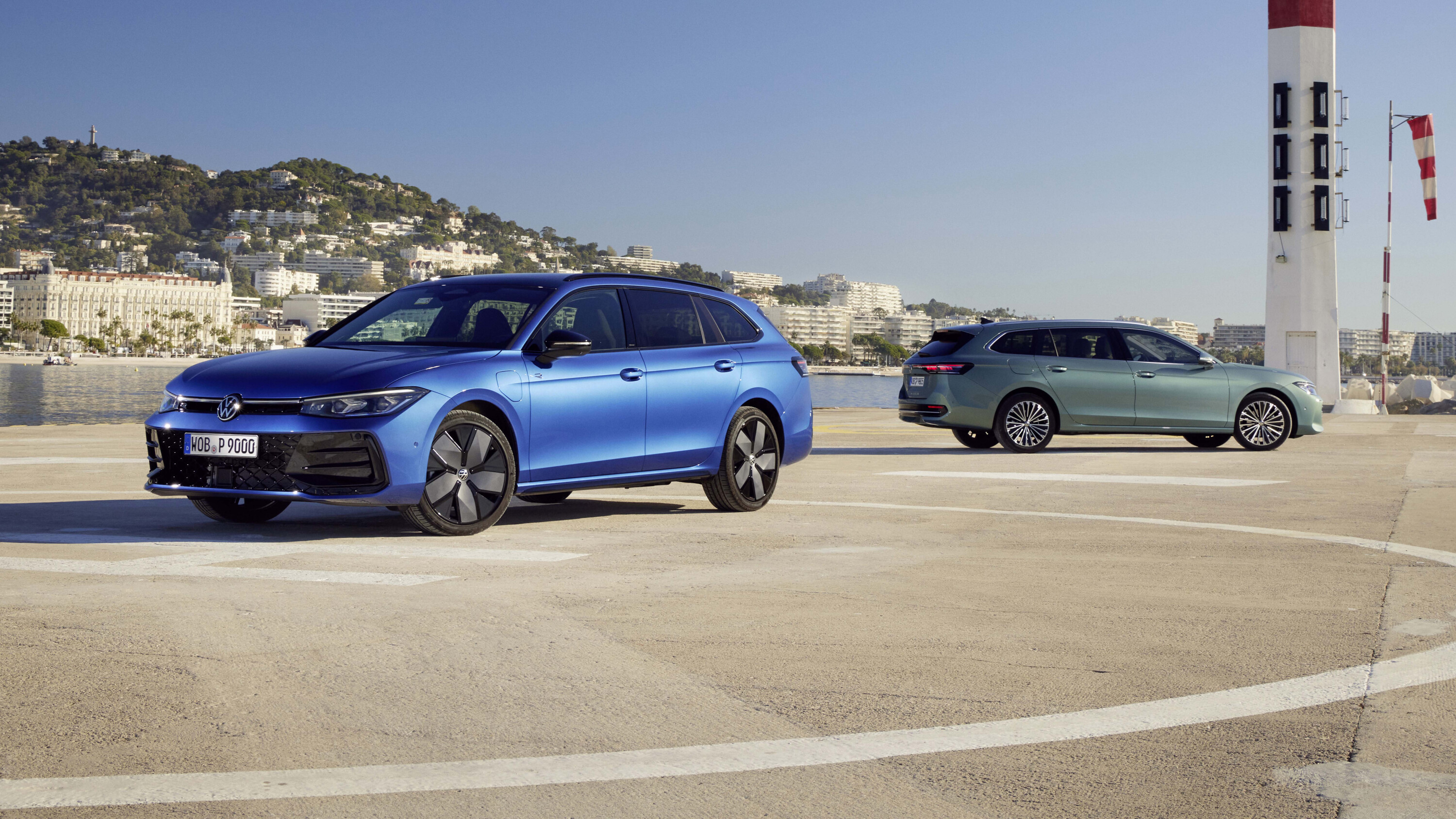
Things we like
- Solid and classy inside
- Decent EV range from the plug-in hybrid
- Steers sharply, grips strongly
Not so much
- VW’s curious ergonomics still linger
- Wagon-only and no longer as handsome
- Australian sales unlikely for now
We recommend
-
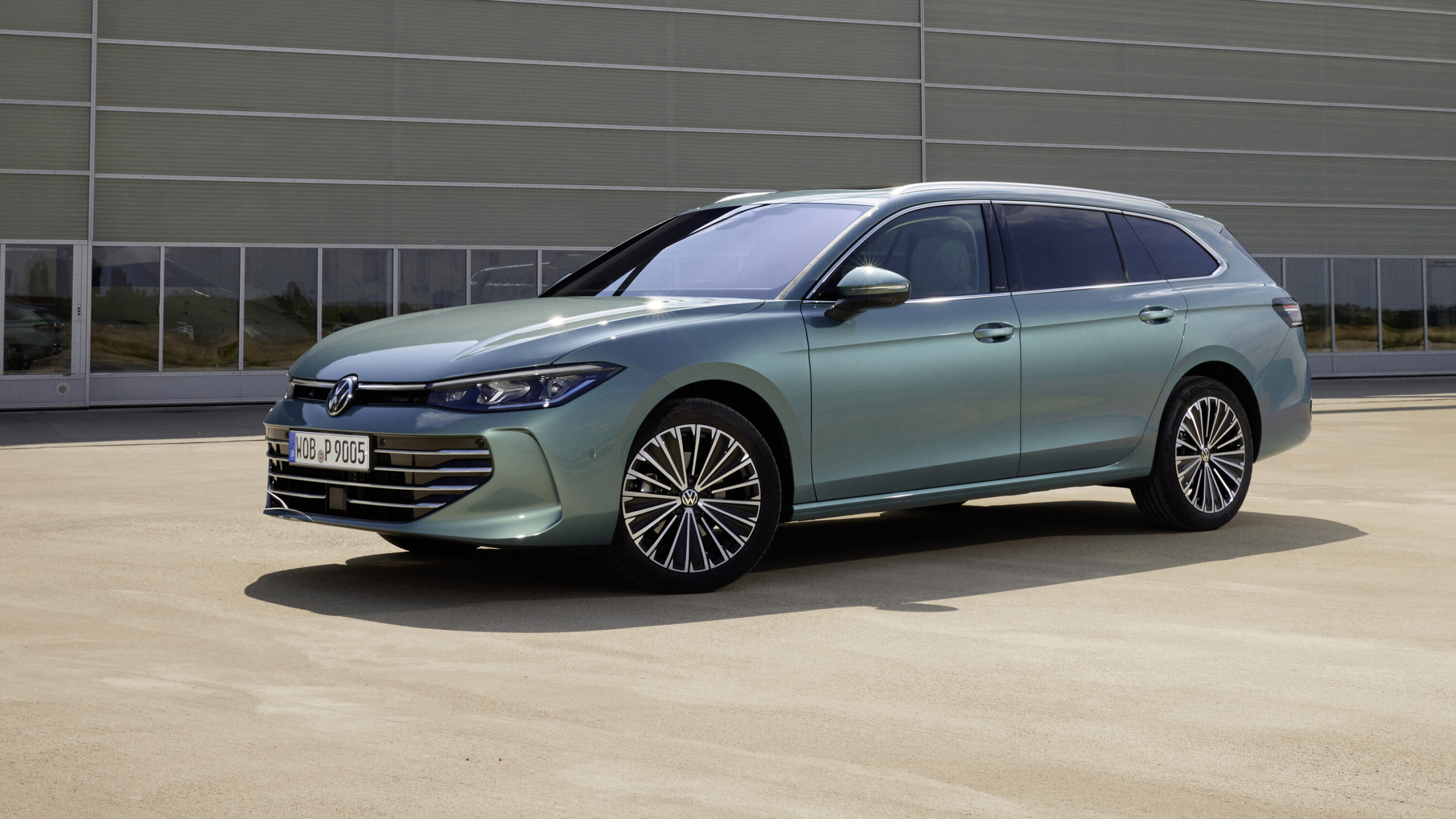 News
News2024 Volkswagen Passat wagon revealed, Australia ruled out
This is the new Passat wagon, but it isn’t coming to Australia
-
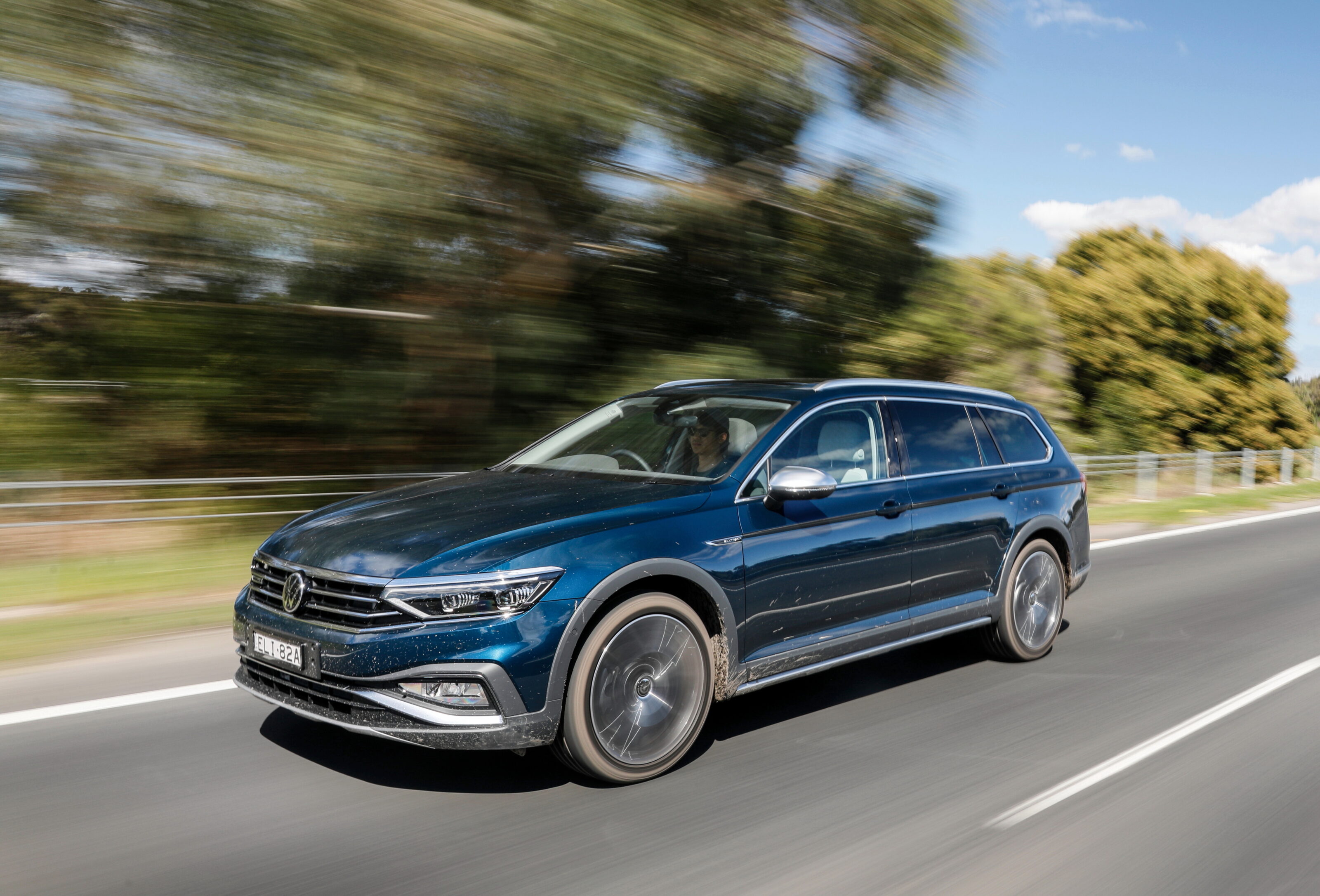 Reviews
Reviews2022 Volkswagen Passat Alltrack review: 162TSI Premium
The Passat's rugged, taller Alltrack offering swaps diesel power for petrol
-
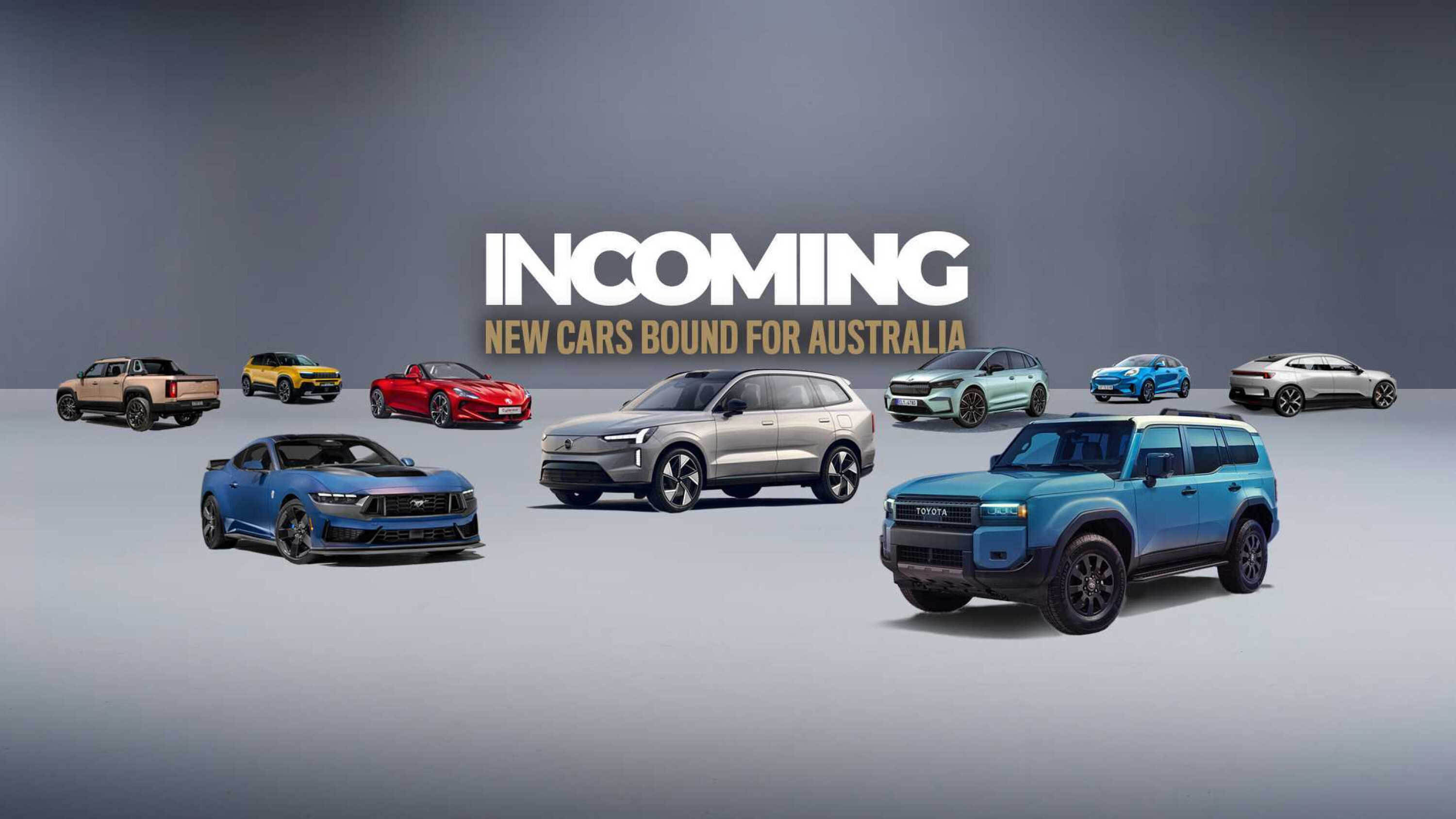 News
News2025 New Car Calendar: All the new cars coming to Australia
Take a look at our list of what is expected to launch in Australia in 2025 – plus those we might not see locally just yet

